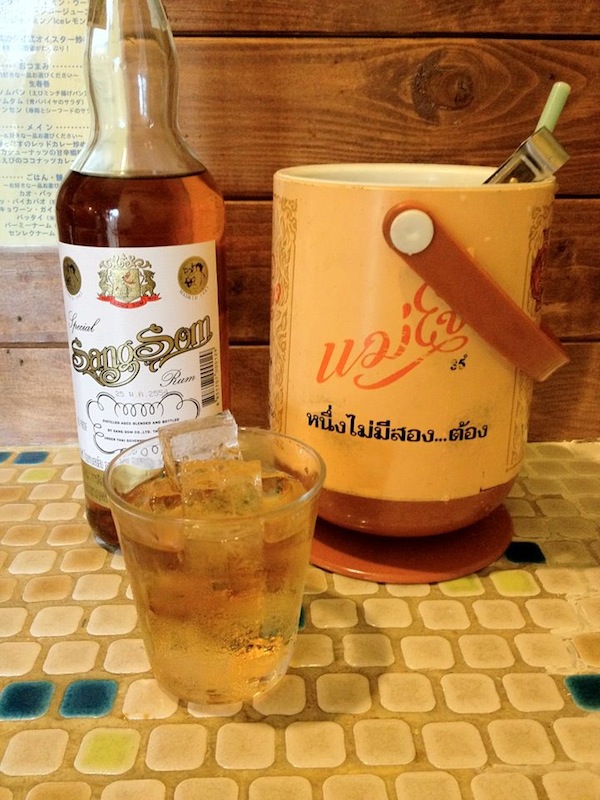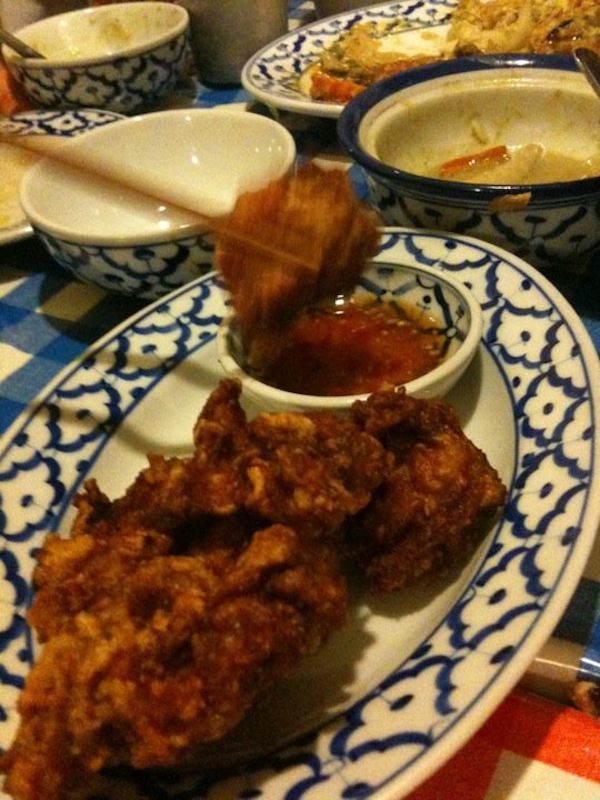Unzarissu
 Wednesday, May 23, 2012 at 9:52AM
Wednesday, May 23, 2012 at 9:52AM
 Sang Som rum from Thailand When I was having dinner at my favorite Thai restaurant, Gamlangdi, the other day, there were two men in their early twenties sitting next to me at the counter. One of them had an annoying verbal tick common among young Japanese today. Nearly every sentence he uttered consisted of one word, usually an adjective or noun, with “-ssu” (—っす) added to the end of it.
Sang Som rum from Thailand When I was having dinner at my favorite Thai restaurant, Gamlangdi, the other day, there were two men in their early twenties sitting next to me at the counter. One of them had an annoying verbal tick common among young Japanese today. Nearly every sentence he uttered consisted of one word, usually an adjective or noun, with “-ssu” (—っす) added to the end of it.
“Ssu” is a contraction of “desu-ne” which means, among other things, “ain’t it”.
As he ate, he kept saying, “umaissu” (うまいっす), by which he meant to say “umai desu-ne” (うまいですね), “This is really good, isn’t it.”
 Salad with raw sausage. Yes, raw. The food was good, but that’s beside the point. The knucklehead’s “sussing” didn’t stop there; he also said things like, “Chô ureshissu” (ちょー嬉しっす), “I’m so happy!”
Salad with raw sausage. Yes, raw. The food was good, but that’s beside the point. The knucklehead’s “sussing” didn’t stop there; he also said things like, “Chô ureshissu” (ちょー嬉しっす), “I’m so happy!”
And:
“Aitsu kakkô iissu” (彼奴、格好いいっす) “That guys really cool.”
“Yabaissu” (ヤバイっす) “Woa!”
Once upon a time, yabai used to mean “dicy”, “chancy”, or “dangerous”, but it is now used to mean just about everything from “wonderful” to “cute” to “delicious” and “scary”, you name it. I really wish the kids would take advantage of the rich vocabulary the Japanese language has provided them and stop using this stupid word. Ditto for Americans and their habit of saying everything is “awesome” or “amazing”.
“Chô omoroissu” (ちょーおもろいっす) “That’s so funny!”
Omoroi is a contraction of omoshiroi, which can mean “funny” or “interesting”.
“Umaissu hito” (うまいっす人) “The guy’s really good.”
I’d never hear “-ssu” used in this manner before, that is before a noun. They guy may have been drunk and intended to say “Umai hitossu” (うまい人っす).
“Hetassu” (下手っす) “I suck at it.”
“Sôssu” (そうっす) “I think so, too.”
 Phuket style friend chicken
Phuket style friend chicken
Anyways, I think, “kono shaberi-kata hontô-ni yameta-hô ga iissu” (このしゃべり方、本当にやめた方がいいっす!) “People should really stop talking like this.”
The title of this post "Unzarissu" is the lazy way of saying "unzari desu" (I'm sick of it!).
